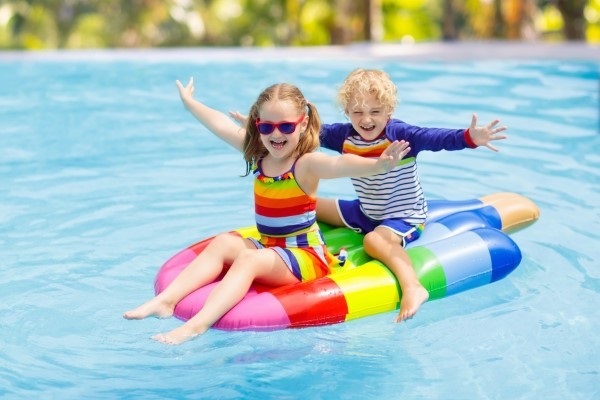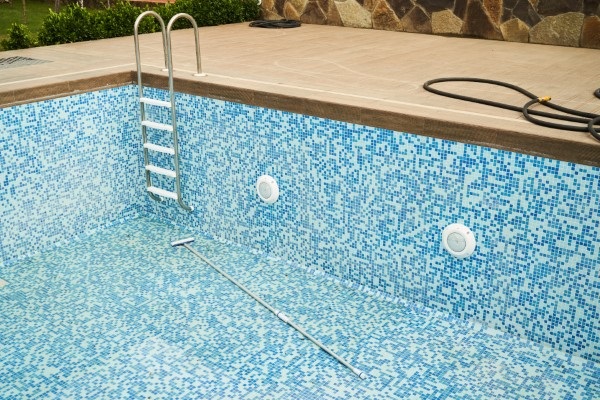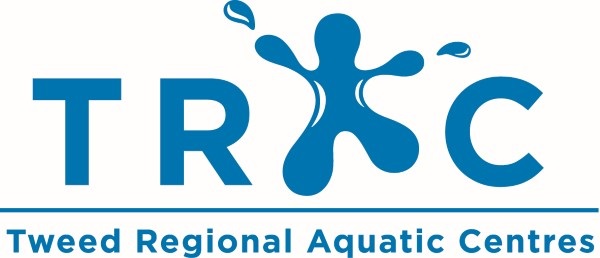Swimming pools and spas
Pool fences and signs Pool registration Public pools and spas Property sale and pool certificates Building a pool Inflatable pools Cleaning and emptyingCertificate of compliance Pool safety inspection
A swimming pool is defined as a structure that can be filled with 300 mm of water or more, and is used for swimming and other water activities.
This includes concrete pools, fibreglass pools, inflatable pools, temporary or wading pools, above ground pools and spas.
Drowning in swimming pools is a major cause of preventable death in children under five.
Children should be actively supervised by an adult at all times when playing around pools. Visit the NSW Fair Trading website for swimming pool and spa safety and the Royal Life Saving Australia website for cardiopulmonary resuscitation (CPR) information.

As a pool owner you’re responsible for:
- supervising all pool users
- making sure your pool meets Australian building standards and laws
- registering your pool
- installing and maintaining legal pool fences
- providing a certificate of compliance when selling or leasing a property with a pool.
Council is responsible for:
- Inspecting pools for Certificates of Compliance
- Enforcing safety standards (issuing fines and penalty notices for non-compliant pools)
- Inspecting pools at tourist, visitor and multiple-occupancy premises
- Following up complaints and cases of unsafe pools
- Reporting on pool inspections to NSW Fair Trading
- Community education campaigns
Pool fencing and signs
 Swimming pools must be surrounded by a childproof barrier.
Swimming pools must be surrounded by a childproof barrier.
In NSW the rules for pool fences vary depending on when the pool was built, and where it is located.
In most situations pool owners must comply with the rules in force at the time the pool was built. However, isolation pool fencing is recommended.
There are also rules around gate closing and latching devices and signage. See pool fencing requirements and swimming pool register.
The Swimming Pool and Spa Association has some good information on pool fencing rules and NSW barrier laws.
Council officers can issue fines of $550 for non-compliant pools.
Pool fence inspections
Council officers inspect swimming pool barriers as part of our pool safety program.
For information about Council’s pool fence inspections see our policy(PDF, 68KB).
Fees apply for Council inspections, see fees and charges (search ‘swimming pool’).
Pool signs
There must be a cardiopulmonary resuscitation (CPR) sign displayed near your pool. The sign must be able to be read easily from 3 metres.
You can buy a CPR sign from Council, your local pool shop or community organisations such as St John Ambulance, the Australian Red Cross or Royal Life Saving.
How to register your pool
Property owners must register swimming pools and spas.
Owners of unregistered pools could be fined.
Register your pool online at the NSW Pool Register
To register you must use the self-assessment checklists and declare that your swimming pool barrier meets safety standards.
Register my pool
If you’re having difficulty, you can ask Council to help you register your pool (a small fee applies). Call 02 6670 2400
Selling, renting or holiday letting a property with a pool - what certificates you need
If you’re selling or leasing a property with a pool (including short-stay holiday rentals) – you must have a valid Certificate of Registration and one of the following:
- certificate of compliance
- certificate of non-compliance
You may also need an occupation certificate.
Pool owners have obligations under the Conveyancing (sale of land) Regulation 2010 and the Residential Tenancies Regulation 2010:
If selling
- The seller of a property with a swimming pool is able to transfer the requirement to make a pool barrier compliant, to the purchaser. The transfer will be realised through the attachment of a ‘certificate of non-compliance’ to the contract for sale. Sales of properties with compliant pools require a ‘certificate of compliance’.
If purchasing
- The purchaser of a property with a swimming pool has 90 days from the date of ownership transfer to address any issues of swimming pool barrier non-compliance.
if renting or holiday letting
- Properties with 2 dwellings or less are required to have a certificate of compliance before entering into a lease.
- Owners of tourist, visitor and multiple-occupancy premises must have a current swimming pool compliance certificate. Certificates are valid for 3 years from the date of issue.
Certificate of compliance
If you have a pool or spa and you're renting, selling, or holiday letting your home you must have certificate of compliance.
Council's service costs $150 which includes:
- First inspection $150
- Follow-up additional inspections if required are $100 per inspection
- Easy to read report if work is required
- Certificate of compliance / non compliance
Book a certificate of compliance inspection: Complete the Swimming pool - application for certificate of compliance / exemption or call 02 6670 2400.
A certificate of compliance is valid for 3 years, as long as no changes have been made to the pool barrier during that time.
A certificate of compliance can also be issued by private certifiers.
Pool safety inspections
To book a general inspection of your pool or spa area, please contact our pool safety team direct via TSCPools@tweed.nsw.gov.au or call 02 6670 2400
Building a new swimming pool or installing a spa?
You need approval for a swimming pool or spa that contains more than 2000 L of water.
You may be able to apply for a Complying Development Certificate (CDC) or a Development Application (DA).
Do I qualify for a Complying Development Certificate?
A CDC may be issued for your Swimming Pool for land zoned if the proposal meets all the relevant development standards.
You can use the Housing Code (Part 3, Division 4, Subdivision 4) to check whether your proposal is complying development. The individual clause should be read in conjunction with all of Part 3.
If your proposal does not meet all of the standards you must lodge a Development Application.
I need a DA, what do I do next?
If your proposal does not qualify as Complying Development, you will need to lodge a Development Application. Use the DA checklist(PDF, 236KB) to help you prepare.
The NSW Department of Planning, Industry and Environment also has a useful guide to the DA process.
Visit the NSW Fair Trading website for more information on building a pool.
Swimming pool legislation
The Swimming Pools Act 1992 works with Australian Standard 1926.1-2012 to set safety standards for ‘backyard’ swimming pools.
Updates by the NSW Government mean there are different rules depending on when a pool was built:
Portable and inflatable pools
 Portable and inflatable pools that can be filled to a depth greater than 300 mm require a childproof fence.
Portable and inflatable pools that can be filled to a depth greater than 300 mm require a childproof fence.
They must comply with all relevant regulations, especially those that aim to keep children under the age of 5 years water-safe.
Owners of portable or inflatable pools should fill out the pool self-assessment checklist on the NSW Swimming Pool Register. If you answer ‘no’ to any questions you must contact Council’s Building and Environmental Health Unit on 02 6670 2400.
Pools that hold more than 2000 litres of water need either a Complying Development Consent or a Development Consent. You need these approvals before installing or registering your pool, and before your Occupation Certificate can be issued.
Cleaning and emptying your pool
Backwash and filter cleaning wastewater
Backwash from sand filters and cleaning water from cartridge filters must be discharged to sewer.
Backwash wastewater is harmful to the environment and aquatic wildlife.
With a sand filter system, the valves that direct backwashing wastewater to sewer must only be used during the backwash operation.
See swimming pool backwash
Pools with ejection pump units
Swimming pool backwash water volume should not exceed 667 litres.
If greater backwash water volumes need to be discharged to the sewerage system, a balancing tank is required upstream of the pump well. Before installing a balancing tank, design plans with supporting hydraulic calculations must be submitted to and approved by Council’s Water and Wastewater Unit.
Overflow water from pools
Pool overflows must be directed to stormwater (never to sewer as it could overload the system).
During rain events you are allowed to discharge pool overflows into the stormwater system (any contaminants will be diluted).
In certain circumstances you can apply for a written exemption to discharge pool overflow to the sewer. Contact Council’s Building Section for information.
Pools in Tumbulgum Village
Tumbulgum Village has a vacuum sewerage system that does not cope with large amounts of wastewater at once. For this reason, pools in Tumbulgum Village must have a cartridge filter (not a sand filter).
Filling your pool and water saving tips

Read more about bulk water and view our water saving tips.
Water testing
See Tweed Lab Services
Public pools and spas

Council manages public pools in Kingscliff, Murwillumbah and South Tweed.
See Tweed Regional Aquatic Centres (TRAC)
Notification for registration of public pools and spas
Council is required to maintain a register of public swimming pools and spa pools in the area, in accordance with Public Health Act 2010 and Public Health Regulation 2012.
The Online registration form is to be used if you have installed a new public pool/spa, are taking over an established premises with a public pool/spa pool or if your existing details have changed.